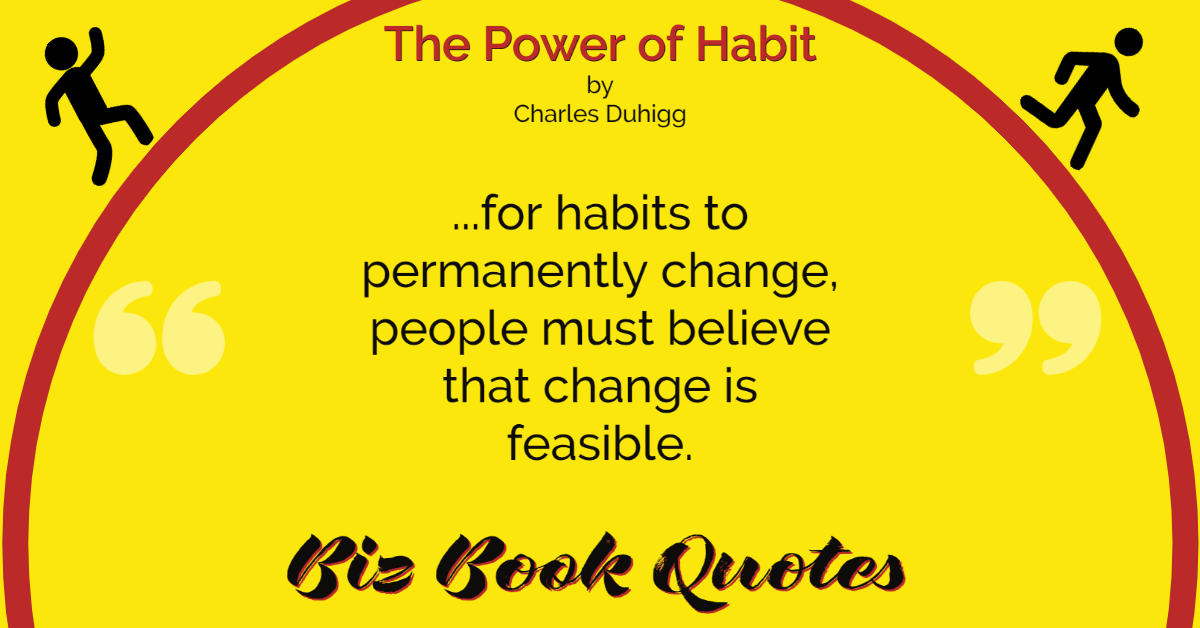 |
…for habits to permanently change, people must believe that change is feasible.
|
89 |
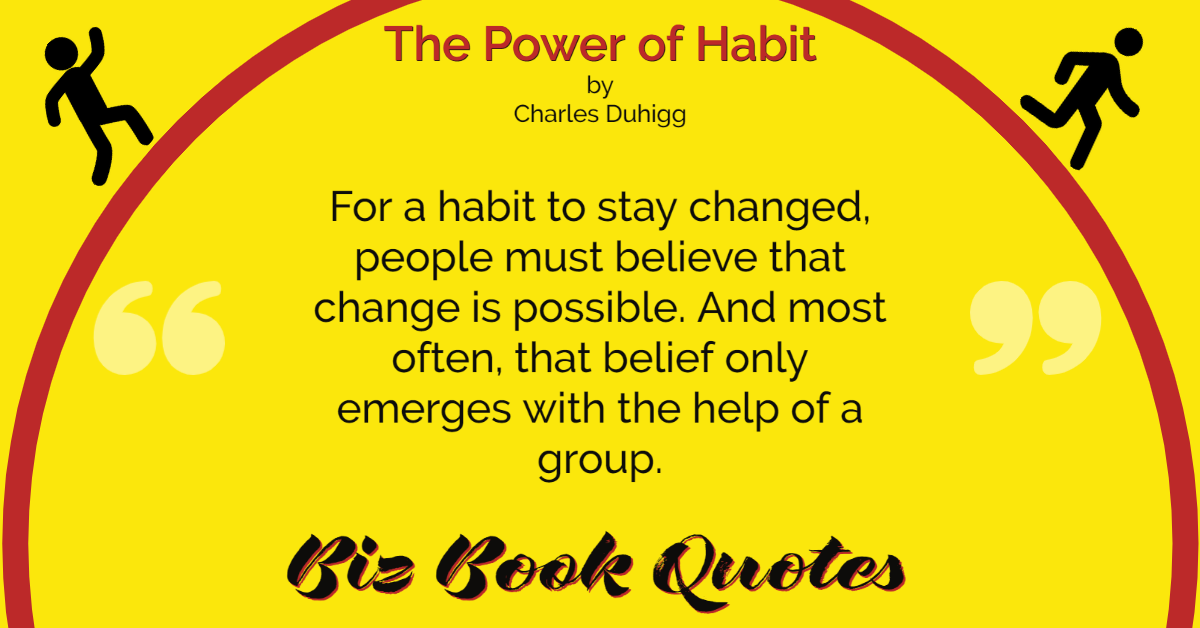 |
For a habit to stay changed, people must believe that change is possible. And most often, that belief only emerges with the help of a group.
|
92 |
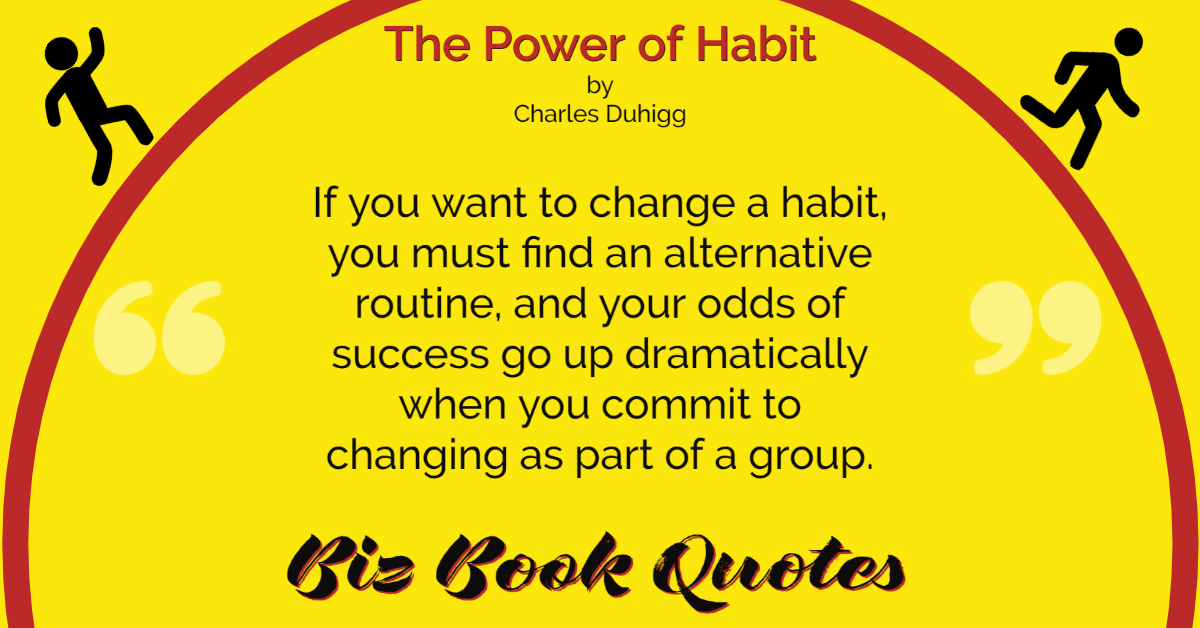 |
If you want to change a habit, you must find an alternative routine, and your odds of success go up dramatically when you commit to changing as part of a group.
|
93 |
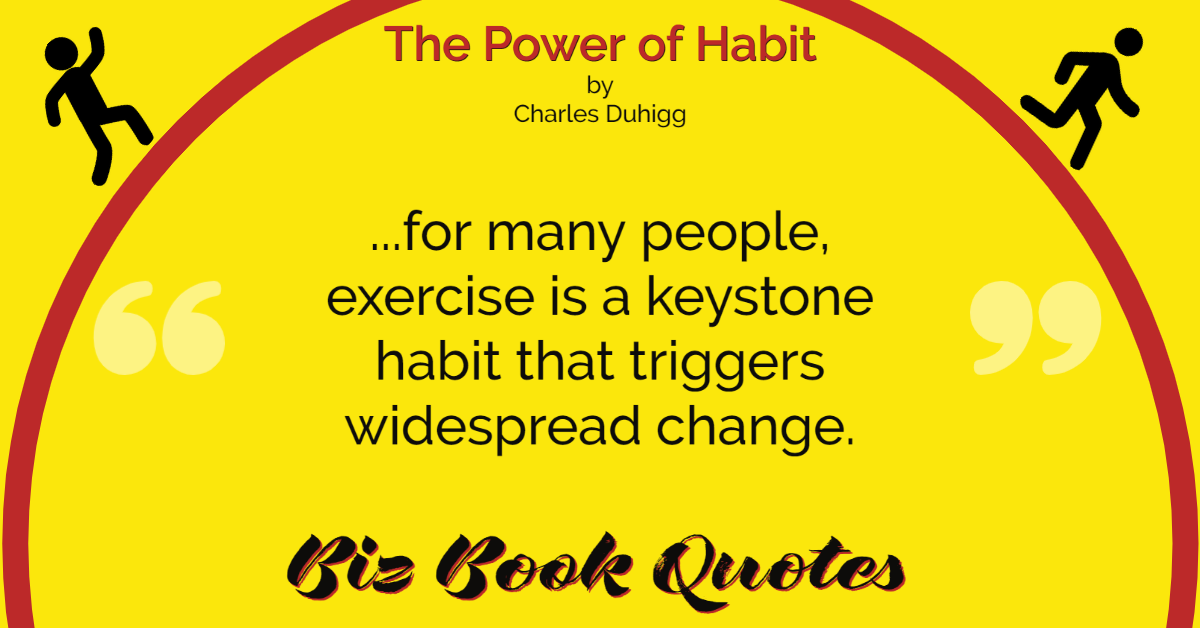 |
…for many people, exercise is a keystone habit that triggers widespread change.
|
109 |
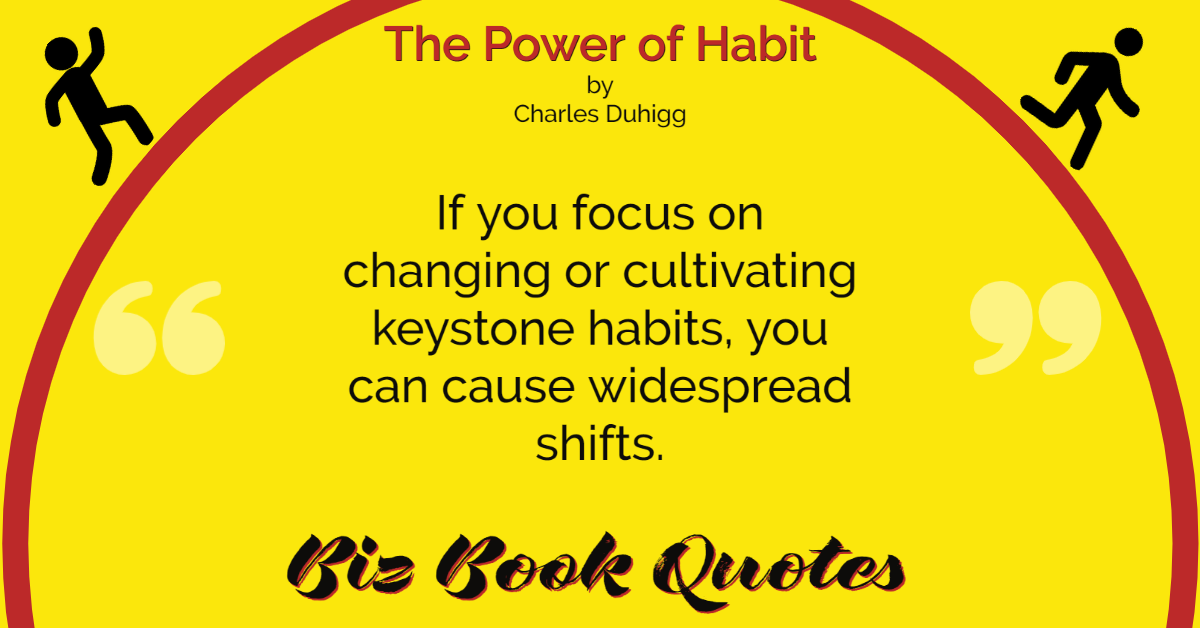 |
If you focus on changing or cultivating keystone habits, you can cause widespread shifts.
|
109 |
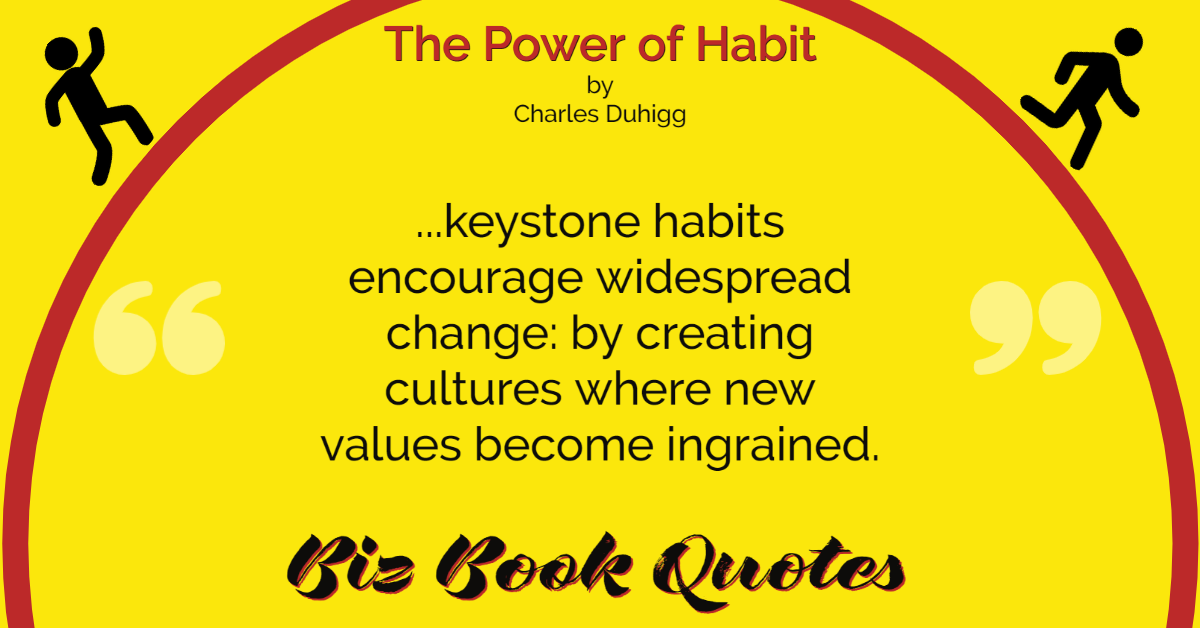 |
…keystone habits encourage widespread change: by creating cultures where new values become ingrained.
|
123 |
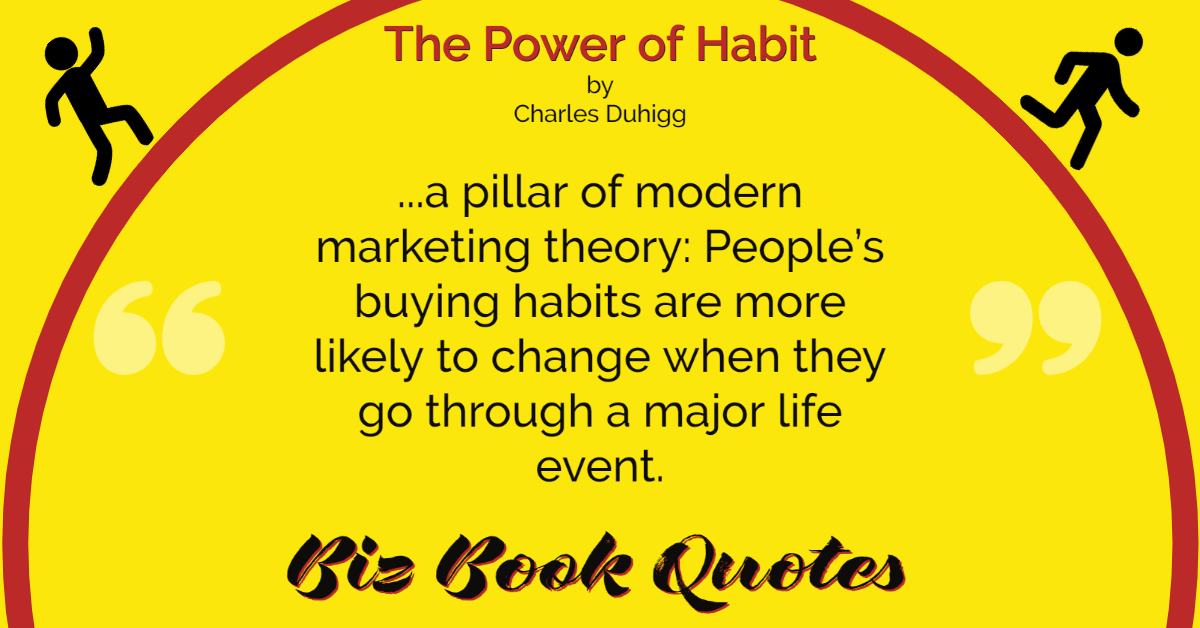 |
…a pillar of modern marketing theory: People’s buying habits are more likely to change when they go through a major life event.
|
191 |
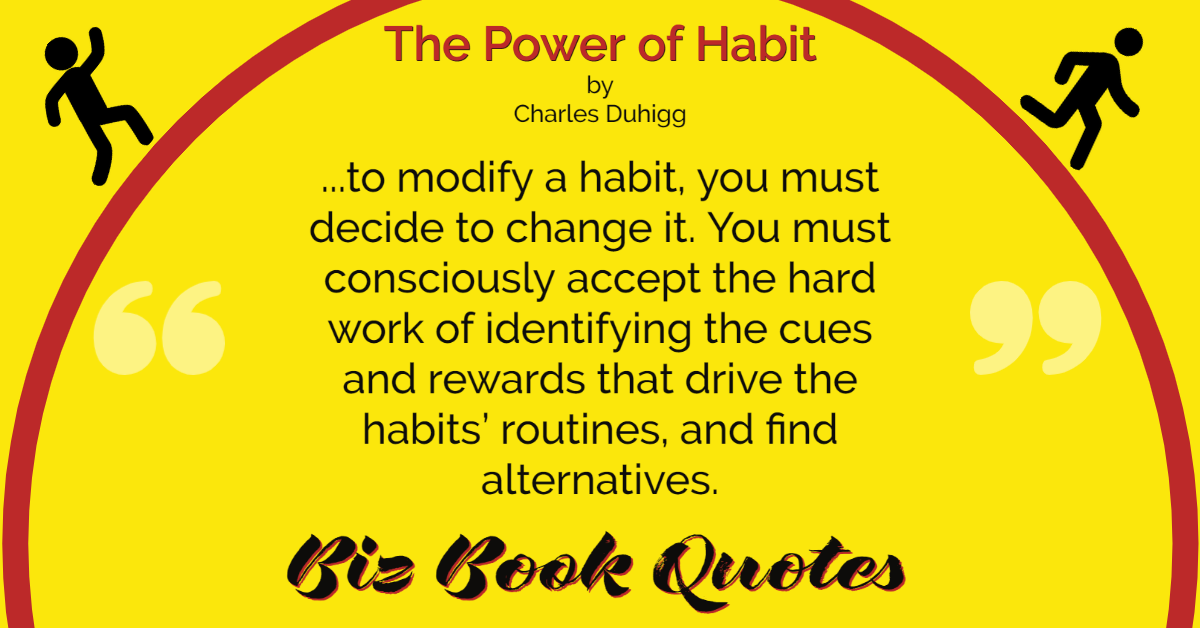 |
…to modify a habit, you must decide to change it. You must consciously accept the hard work of identifying the cues and rewards that drive the habits’ routines, and find alternatives.
|
270 |
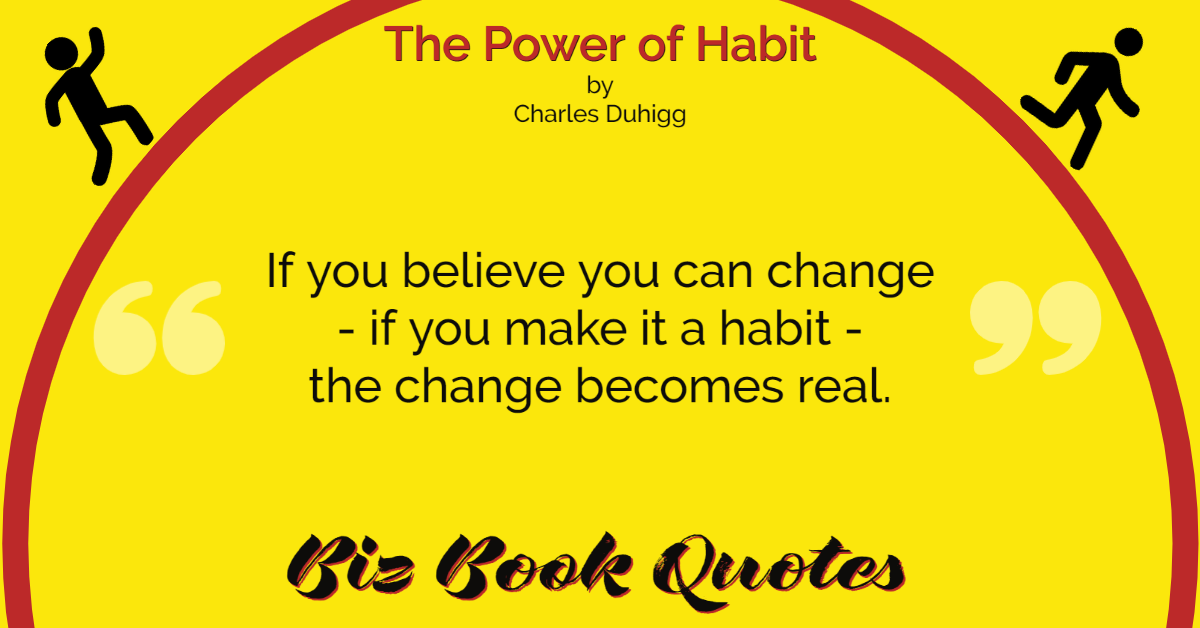 |
If you believe you can change – if you make it a habit – the change becomes real.
|
273 |
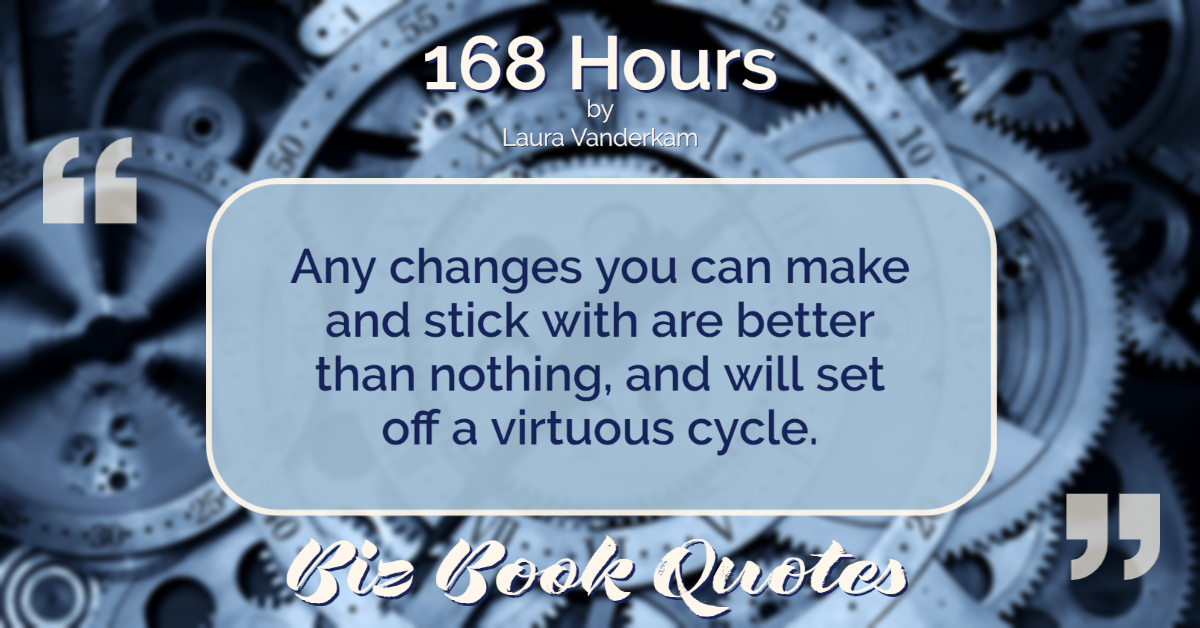 |
Any changes you can make and stick with are better than nothing, and will set off a virtuous cycle.
|
224 |